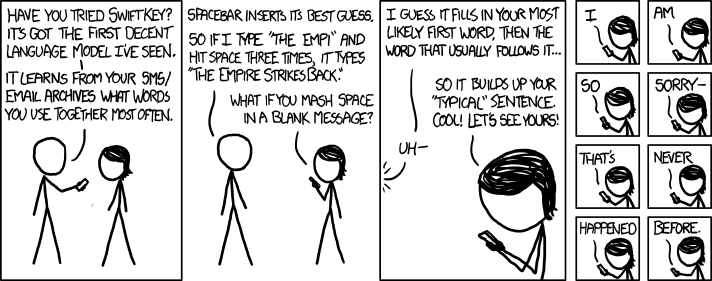Not raising hogs
Following on from Barbara Partee's example of Kruschev not banging his shoe, I just came across a great example of chained hypothetical negative events. It was during Bonnie Webber's plenary address here in Austin yesterday, at the NASSLLI Summer School. (BTW, if you'll be in the Austin area on Saturday, I have an announcement for you: NASSLLI is hosting a big event commemorating the centenary of Turing's birth, and it's free and open to the public.) But without more ado, here's the "Not raising hogs" text, a good Texas story of how to get something from nothing:
THE NOT RAISING HOGS BUSINESS
To: Mr. Clayton Yeutter
Secretary of Agriculture
Washington, D.C.
Dear Sir,
My friends, Wayne and Janelle, over at Wichita Falls, Texas, received a check the other day for $1,000 from the government for not raising hogs. So, I want to go into the "not raising hogs" business myself next year.
Read the rest of this entry »



